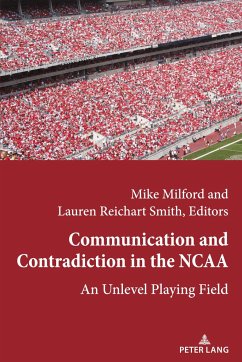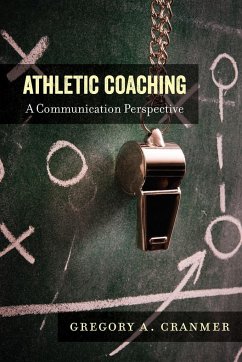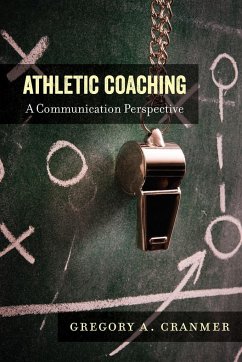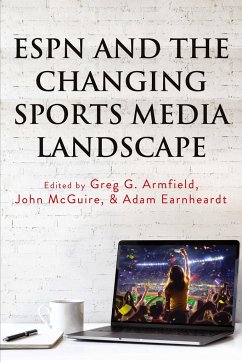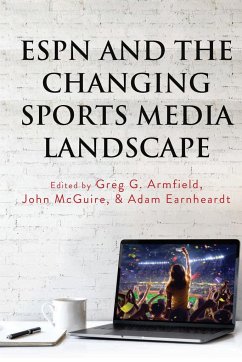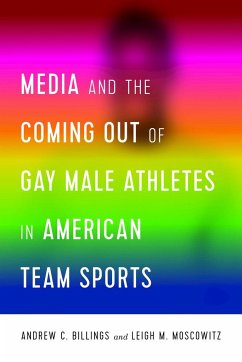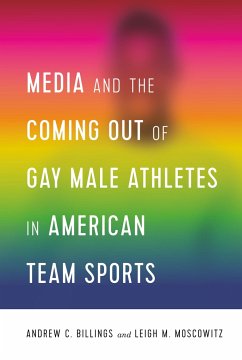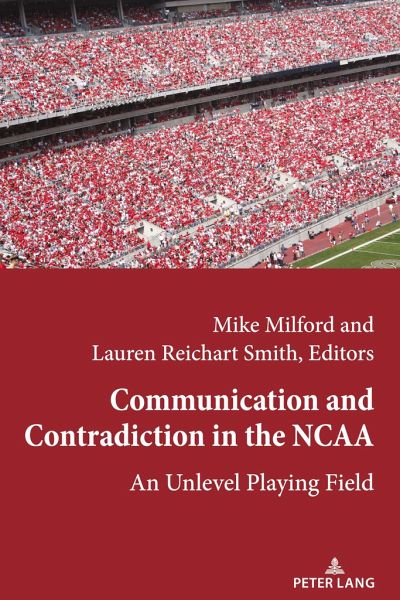
Communication and Contradiction in the NCAA
An Unlevel Playing Field
Herausgegeben: Wenner, Lawrence A.; Billings, Andrew C.; Hardin, Marie; Milford, Mike; Smith, Lauren Reichart
Versandkostenfrei!
Versandfertig in 6-10 Tagen
122,65 €
inkl. MwSt.
Weitere Ausgaben:

PAYBACK Punkte
0 °P sammeln!
Communication and Contradiction in the NCAA: An Unlevel Playing Field is a critical examination of the contradictory nature of the NCAA, and how the inherent contradictions impact the communication activities of its constituents, supporters, and challengers. At the heart of the NCAA is the student-athlete, born out of an idealistic collection of communal values that is often at odds with institutional practices. The rhetorical negotiation of the student-athlete's identity informs and confuses communication practices on a number of levels, from interpersonal interactions to organizational apolo...
Communication and Contradiction in the NCAA: An Unlevel Playing Field is a critical examination of the contradictory nature of the NCAA, and how the inherent contradictions impact the communication activities of its constituents, supporters, and challengers. At the heart of the NCAA is the student-athlete, born out of an idealistic collection of communal values that is often at odds with institutional practices. The rhetorical negotiation of the student-athlete's identity informs and confuses communication practices on a number of levels, from interpersonal interactions to organizational apologia. Because the student-athlete is critical to maintaining the collegiate athletics orientation, the NCAA works overtime in promoting, maintaining, and defending it in the face of public scrutiny. The NCAA and its member institutions, like any organization, are compelled to answer public accusations, often working to defend inconsistent policies to an increasingly hostile audience. In an effort to solidify its power, the NCAA uses public discourse to maintain its position by establishing and enforcing proper codes of conduct for participants, and rationalizing unfair labor practices, athletics budgets, and rising tuition costs designed to boost athletics. In response they often rely on familiar rhetorical and organizational practices, such as branding, mascots, and heroic stories of student-athletes, all of which come with issues of their own. All of these communication phenomena, from interpersonal support-seeking to organizational scapegoating, are informed by the central student-athlete mythos. This puts the NCAA at a contradictory crossroads as they work to reconcile inconsistent practices and messages.





